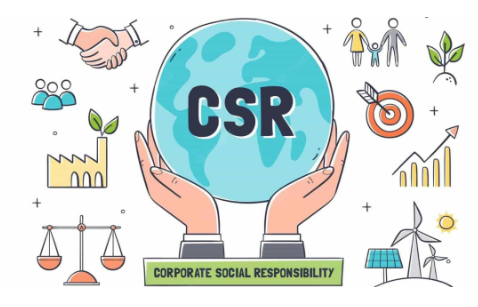RESMYLE trained 20 participants on Corporate Social Responsability

On the 27th of October 2023, the Higher Institute of Sciences and Technologies of the Environnement in Tunisia, partner of RESMYLE, held a training on Corporate Social Responsilibty (CSR) for 20 ecoentrepreneurs in order to develop their business in a sustainable and responsible manner.
In the ever-changing world of business, eco-entrepreneurs stand out for their commitment to sustainable practices. For these players, integrating CSR into their company's value chain has a number of advantages and responds to various contemporary issues. However, this can only be learned, and that was the subject of this transnational training course.
Main objective : Merging economic performance and societal impact
At the heart of this training lied the desire to transform companies into social players with a strong positive impact on local communities and the environment. To achieve this, eco-entrepreneurs needed to be equipped with the tools, knowledge and skills that contribute to this objective at every stage of the company's value chain, without compromising their profitability.
Focus on the value chain: from production to consumption
The training looked at each link in the value chain, from the supply of raw materials to the distribution of finished products, and included the source of the capital to be raised. Eco-entrepreneurs were trained to identify opportunities for CSR-related optimisation at each stage of the process.
Eco-responsible and innovative companies
Eco-entrepreneurs acquired the skills needed to design, implement and evaluate CSR strategies within their companies. By adopting responsible practices, a company can improve its brand image and win the confidence of consumers. In addition, companies that integrate CSR into their value chain can stand out from the competition by offering eco-responsible products or services or by adopting sustainable practices. This can be an argument for differentiation in the marketplace. Finally, sustainable use of raw materials and waste reduction are also a way of reducing costs. These issues are central to developing a credible CSR strategy and a viable business model.
Towards a sustainable and committed future
This transnational initiative was much more than just a training course. It was an opportunity for eco-entrepreneurs to become major agents of change, building a future where social responsibility will be an integral part of any successful business.
Conclusion: investing in ethics and sustainability
Investing in training focused on integrating social responsibility into the value chain for eco-entrepreneurs was a step towards a fairer and more sustainable economic model. It goes beyond moral concerns. It was an approach that demonstrated the ability of companies to generate economic activity while having a positive impact on society and the environment









